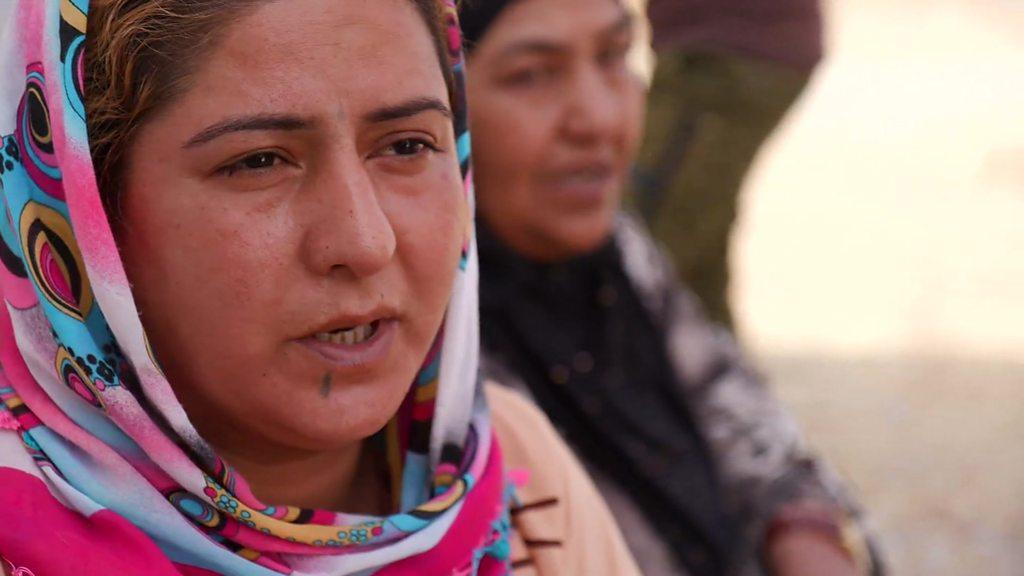Turkey Syria offensive: Kurds accuse Turkish army of violating ceasefire
- Published
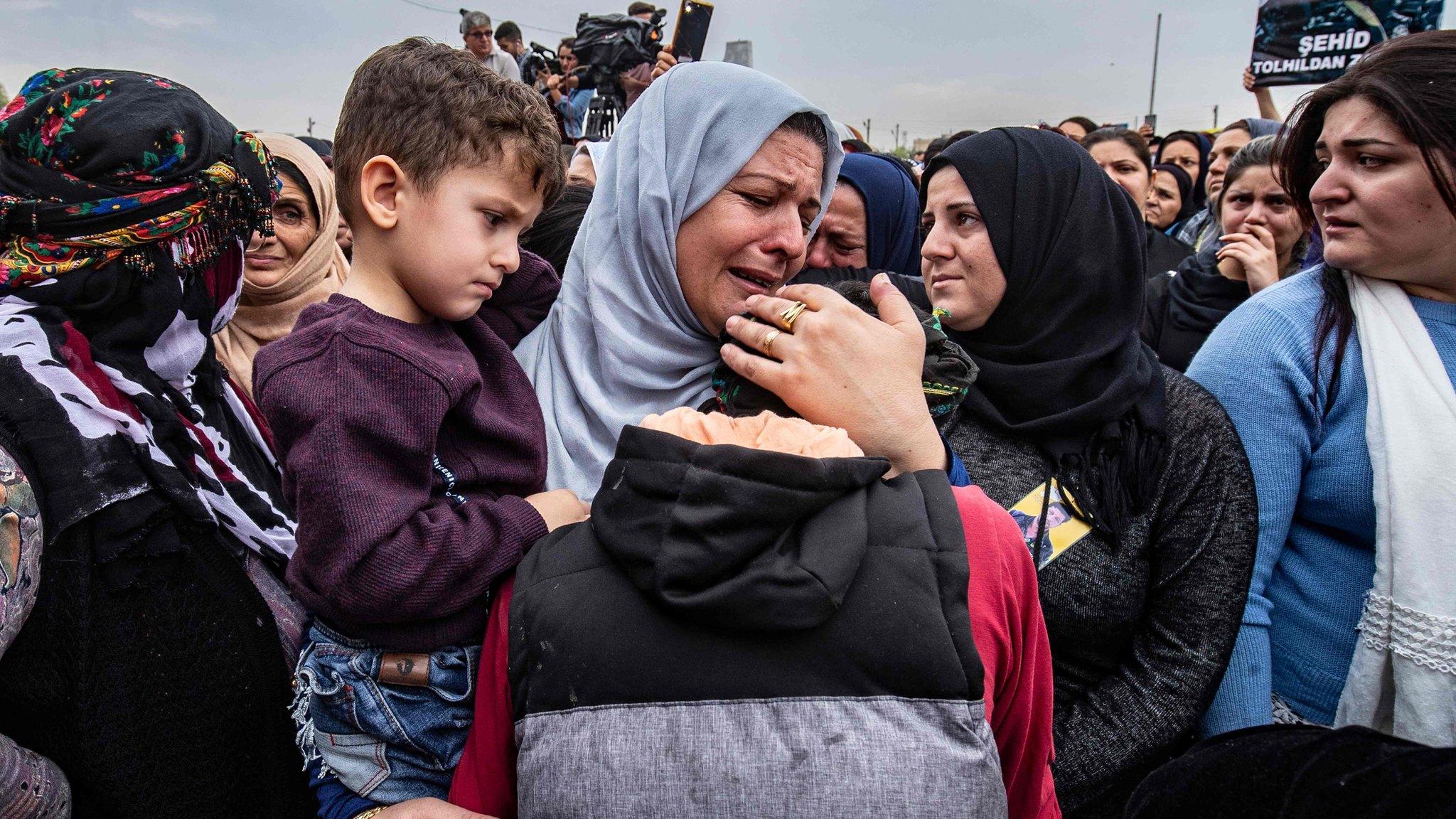
Funerals were held on Thursday for three SDF fighters killed in fighting near Ras al-Ain
Kurdish-led forces in north-east Syria have accused Turkish troops and allied Syrian rebels of violating a ceasefire deal that ended a two-week offensive.
The head of the Syrian Democratic Forces (SDF) alliance, Mazloum Abdi, said there had been attacks on the frontline near the town of Ras al-Ain.
He urged the truce's guarantors - the US and Russia - to "rein in the Turks".
Meanwhile, the Russian foreign ministry said Kurdish fighters in the SDF were pulling back from the Turkish border.
Under a deal between Russia and Turkey, they must withdraw at least 30km (20 miles) by Tuesday and hand over control to the Russian and Syrian militaries.
In a speech, Turkish President Recep Tayyip Erdogan warned that if Kurdish fighters failed to do so, his country would use its right to "crush them".
How did we get here?
Two weeks ago, Turkey launched a cross-border operation to set up a "safe zone" on the Syrian side of the border clear of members of a Kurdish militia that dominates the SDF called the People's Protection Units (YPG).
The Turkish government views the YPG as a terrorist organisation. It says it is an extension of a Kurdish rebel group that has been fighting in Turkey for decades.
The Turkish assault began days after US troops, who had relied on the SDF to defeat the jihadist group Islamic State (IS) in Syria, pulled back from the border.
"We were by the gate when a shell hit"
The SDF complained that it had been "stabbed in the back" by the US and after several days of fighting the alliance turned to the Syrian government and its ally, Russia, for help. They agreed to deploy Syrian soldiers and Russian military police to stop the Turkish advance.
Despite his support for the Syrian opposition, Mr Erdogan reached a deal with Russian President Vladimir Putin in Sochi that was meant to end the offensive.
They agreed that Turkey could keep its forces in a 120km-long, 30km-deep strip of territory between Ras al-Ain and Tal Abyad, and that Russian and Syrian troops would ensure the withdrawal of YPG fighters from the rest of the border area.
The Syrian Observatory for Human Rights, a UK-based monitoring group, said 120 Syrian civilians were killed during the offensive, along with 275 SDF fighters, 196 Turkish-backed Syrian rebels, 10 Turkish soldiers, and five Syrian soldiers. Twenty civilians also died in YPG attacks on Turkey, according to Turkish officials.
What's the latest on the ground?
SDF spokesman Mustafa Bali said on Tuesday that the Turkish army had attacked three villages south of Ras al-Ain - Assadiya, Mishrafa and Manajer - "with a large number of mercenaries and all kinds of heavy weapons despite the truce".


"SDF will exercise its right to legitimate self defense and we are not responsible for the violation of the agreement," he tweeted.
Syria's state-run Sana news agency said Turkish-led forces had attacked Syrian army positions outside the town of Tal Tamer.
There was no immediate comment from Turkey. But its state-run Anadolu news agency said two Syrian rebel fighters had been injured in a YPG bomb attack in the Tal Abyad area.
Russian media reported that 276 additional military police officers and heavy equipment will be sent to Syria in the next week to patrol the border area.
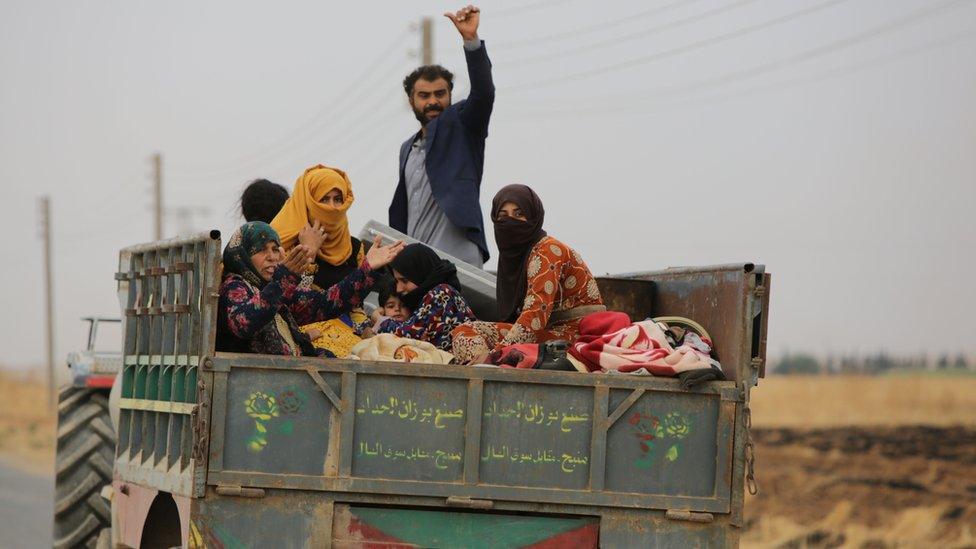
The UN says almost 180,000 people have been displaced by the fighting
"We note with satisfaction that the agreements reached in Sochi are being implemented," Russian Deputy Foreign Minister Sergei Vershinin was quoted as saying by Interfax news agency.
Kremlin spokesman Dmitry Peskov stressed that any US troops still based in Syria were there illegally and should withdraw immediately.
What is the US saying?
Defence Secretary Mark Esper told a think tank in Brussels on Thursday that Turkey had put the US "in a very terrible situation" by launching the offensive, adding: "I think the incursion was unwarranted."
He also warned that its Nato ally was "heading in the wrong direction".
Trump on Syria: "Let someone else fight over this long, blood-stained sand."
"We see them spinning closer to Russia's orbit than in the Western orbit, and I think that is unfortunate."
On Wednesday, President Donald Trump said he would lift the sanctions he imposed in response to the Turkish offensive and said his administration's efforts to broker a ceasefire had "saved tens of thousands of Kurds".
He also defended the US withdrawal from Syria, despite the fact that the move has cemented Russia's role as the pivotal player in Syria.
"Turkey, Syria, and all forms of the Kurds, have been fighting for centuries. We have done them a great service, and we've done a great job for all of them. And now we're getting out."
"Let someone else fight over this long blood-stained sand," he added.
- Published23 October 2019
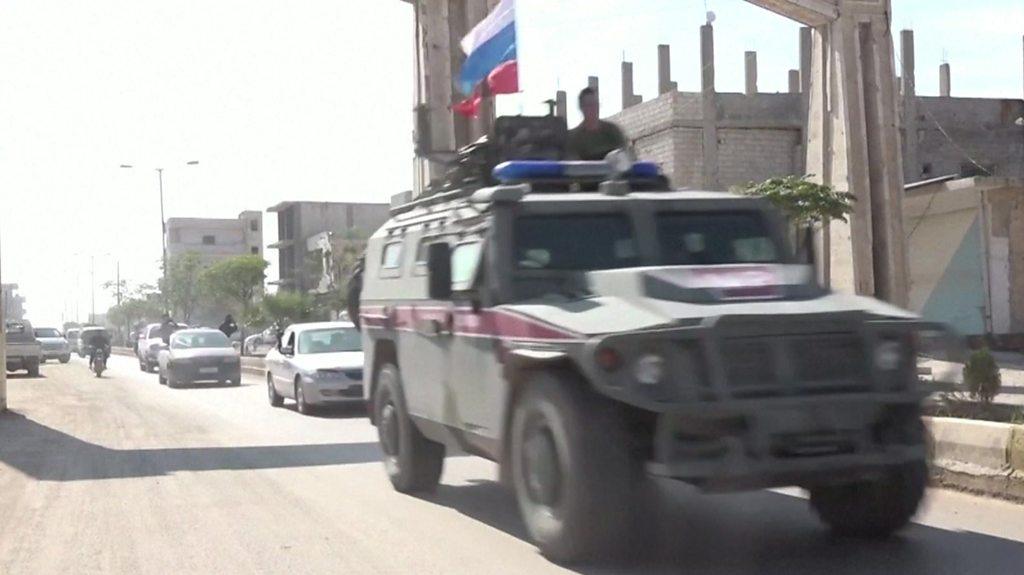
- Published23 October 2019
- Published23 October 2019
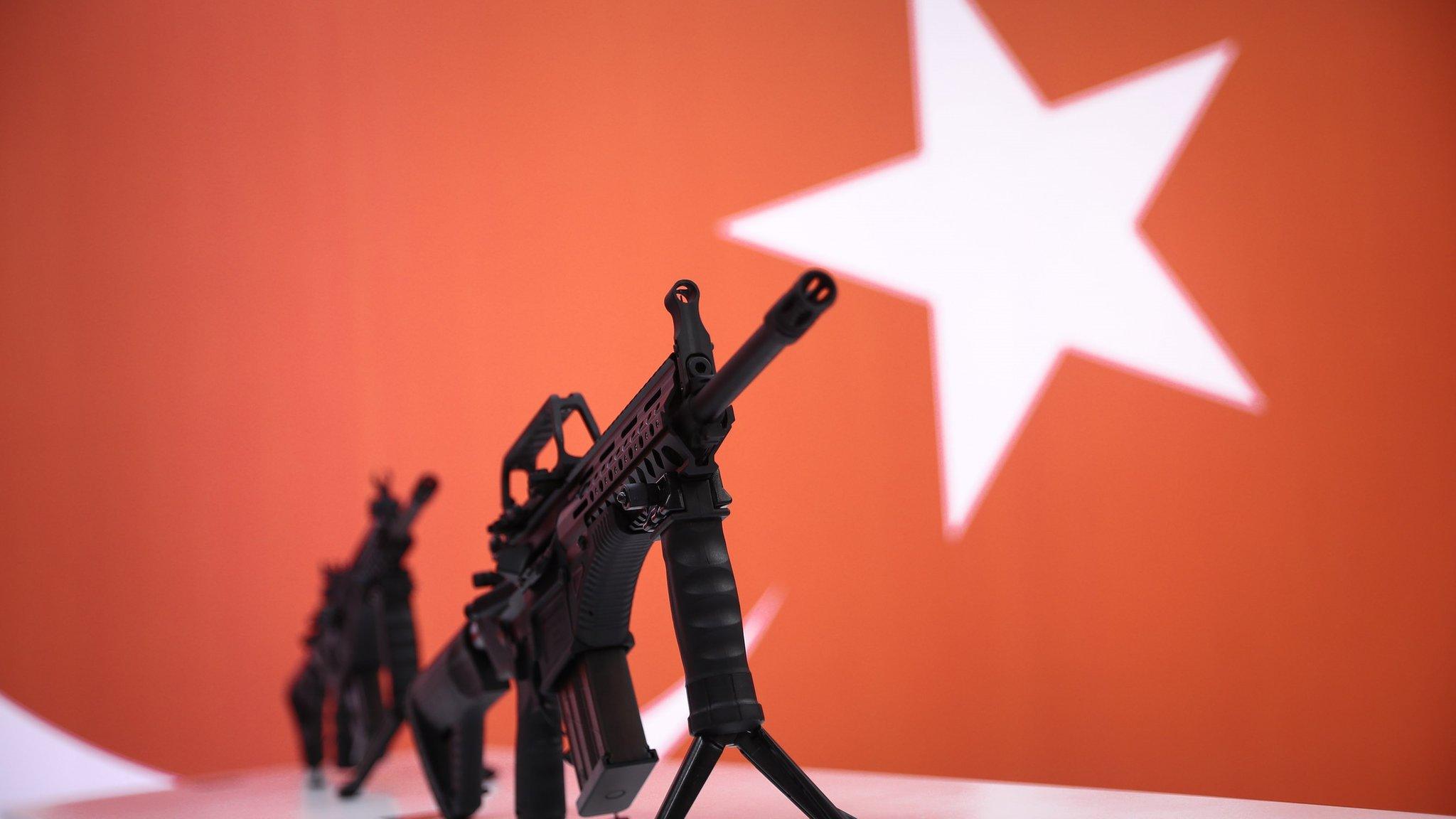
- Published23 October 2019
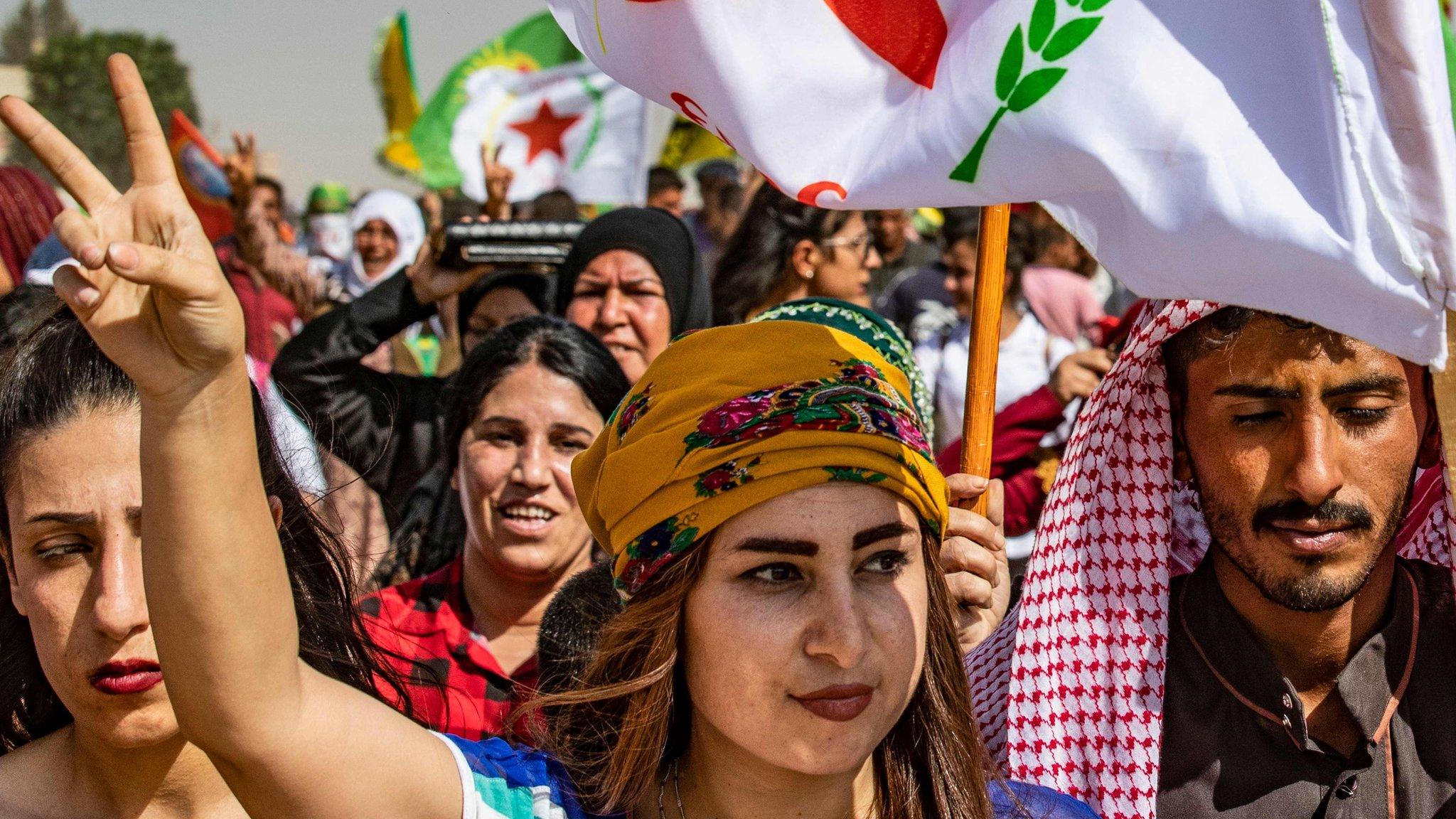
- Published21 October 2019
